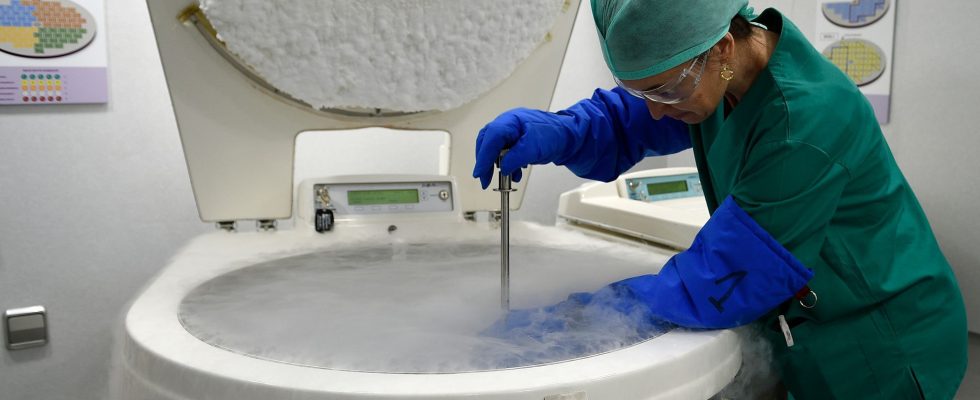The value of tomorrow is realized in partnership with Zonebourse.com
After a publication of disappointing results, Vitrolife recorded a stock market plunge of 17% on July 14. His journey as a listed company looked like a dream between 2009 and the very beginning of 2022. And a kind of nightmare since. More trivially, let’s say that, as often with this type of society, excesses work both ways. But why be interested in Vitrolife? Because his profile is extremely rare on the financial markets.
This Swedish company is an expert in assisted reproduction. More specifically, it develops and markets products and systems dedicated to in vitro fertilization (IVF). As every detail counts in the fragile process of assisted procreation, Vitrolife is present throughout the IVF cycle. Equipment for egg retrieval and sperm separation, the necessary for fertilization and culture, but also the tools for evaluation and then embryo transfer. Therefore, the company’s main customers are clinics and hospitals specializing in assisted human reproduction, and even research laboratories.
The economic model has been honed over the thirty years of existence of the company based in Gothenburg and listed on the stock exchange since 2001. It consists of convincing practitioners to choose Vitrolife solutions, training them and then selling them consumables related to the equipment installed. A little original operation but which has proven itself. The milestone of profitability was crossed several years ago, which distinguishes the Swedish from the mass of biotechnology players, who generally accumulate losses. Modest debt, coupled with high cash generation, enabled the acquisition of Igenomix in 2021 for €1.25 billion. This laboratory specializing in reproductive genetic testing is very well established in clinics that practice in vitro fertilization. He made the genetic branch of the group grow, which until then had been quite limited.
Rare for a biotech, the company pays a dividend
The new duo posted in 2022 a turnover of 3.23 billion Swedish crowns (around 280 million euros), for an operating margin of around 20%. This high level of profitability illustrates the quality of the model, especially when combined with high quality free cash flow generation. Vitrolife has even paid out a small dividend for years, which is rather rare in the world of biotechs of this size. As for the activity, it is in constant progression, due to the increase in the population and the development of IVF among couples who have difficulty having a child. It now relies 40% on consumables, 40% on genetic testing and the balance on the technology division. Turnover should increase by a quarter between 2022 and 2025, for improved profitability. It is in any case the promise of the company, still valid despite the air pocket which affected the stock market in mid-July.
A strong Scandinavian shareholder base
Vitrolife is therefore a niche player, whose competitors are often integrated into larger medical groups. However, it can count on a robust shareholder base, largely Scandinavian. The William Demant Foundation (Denmark) owns 26.7% of the capital, while the Swedish long-term investor Bure Equity controls almost 16%. The valuation is high, as is usually the case for healthcare companies operating in a rare field, but it has recently fallen below the average of the last ten years. The 2025 earnings multiple is even less than 30 times, which has not been seen for ages on the stock. As the price has lost two-thirds of its value since the excesses of 2021, this gives an entry point which, if not entirely reasonable, is significantly more affordable.
